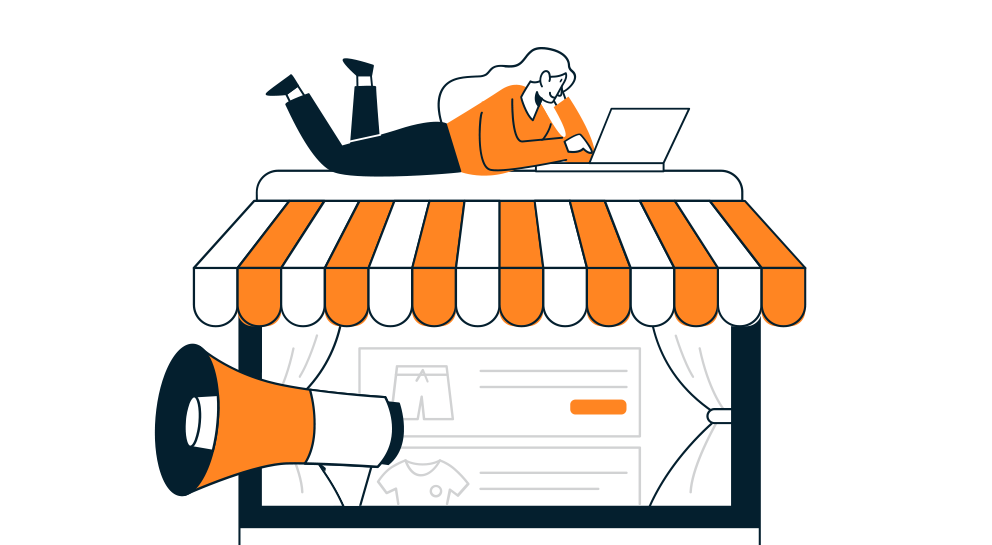Marketing Strategies & Tools for Small Businesses
Table of contents
Ah, the $1,000,000 question!
If you’re like most small business owners, managing your day-to-day operations can be challenging enough. On top of that, you’re probably concerned about how to effectively market your business, attract more leads, generate customers, and boost sales. After all, these are key factors that drive your business’s success. With so many marketing tools and strategies available today, from social media and digital advertising to SEO and content marketing, it can feel overwhelming to figure out where to start. It’s easy to get caught up in the idea that you need to be everywhere at once to make an impact—running ads on every platform, optimizing your website for every search engine, and engaging with your audience across all social media channels, and, and, and! However, this approach can be daunting and expensive, especially with a limited budget.

#01
Why Is Small Business Marketing Important?
Types of Small Business Marketing
Email Marketing
Here Are Some Email Marketing Tools to Consider:
Mailchimp: Known for its free plan for users with under 2,000 subscribers, Mailchimp offers marketing options, landing pages, auto-responses, and segmentation.
Zoho Campaigns: Provides automation and integration with CRM, starting at $3 per month.
MailerLite: This service offers email marketing and blogging features, with a free version for up to 1,000 subscribers.
Constant Contact, Omnisend, Klaviyo, Drip, and Brevo: These platforms offer various features, including advanced automation, segmentation, and integration options.
#B
Social Media Marketing

Here Are The Main Social Media Platforms and What They Can Be Used For:
Facebook (Meta): Ideal for boosting brand awareness and generating leads through paid ads. Many local businesses that offer services or products find success with Facebook ads.
Instagram: Useful for sharing stories, reels, and engaging with your audience in real-time. Start-ups and product-based businesses can find creative ways to market their products through Instagram. Instagram also uses Facebook’s marketing platform, so ads can be run on Instagram.
TikTok: Excellent for creating and sharing short-form videos to reach a broad audience. This is good for businesses that sell products. TikTok’s new ad platform uses a powerful algorithm to boost engagement with ads and appears very effective for product-based businesses. Remember that TikTok generally has a younger audience so research into whether your product would fit TikTok is key.
Twitter (X): Great for sharing quick updates and engaging with customers.
LinkedIn: Effective for business-to-business (B2B) networking and generating new leads. Direct LinkedIn outreach is still one of the best ways to generate new B2B leads.
Pinterest: Helps reach an audience seeking inspiration and ideas.
YouTube: Allows users to share detailed video content and demonstrations.
#C
Content Marketing

How To Do Content Marketing
If you’re a small business with a tight budget looking to dive into content marketing, here are five cost-effective strategies you can start with:Utilize Social Media:
• Choose the Right Platforms: Content published on social media is part of content marketing. Identify where your audience spends their time (e.g., Facebook, Instagram, LinkedIn) and focus on those platforms. Share content regularly, including updates, behind-the-scenes looks, and industry news.
• Engage with Your Audience: Respond to comments and messages, participate in relevant conversations, and join groups related to your industry to increase your reach and build relationships.
Search Engine Optimization (SEO) Marketing

Here Are The Main Social Media Platforms and What They Can Be Used For:
Google Analytics: Provides insights into customer behavior and helps improve ROI. Google Search Console: Monitors your website’s performance and ranking in search results. Ubersuggest: Generates keyword ideas and SEO insights. Semrush: Offers keyword optimization, competitor analysis, and SEO improvements.Mobile Marketing
Traditional Marketing

#01
Define Your Goals:
Examine Your Current Efforts:
Know Your Target Customer:
Choose Your Strategies:

Need Help?
Free Homepage Design
Get a stunning, custom homepage for free!
Limited-time offer—claim yours now!





